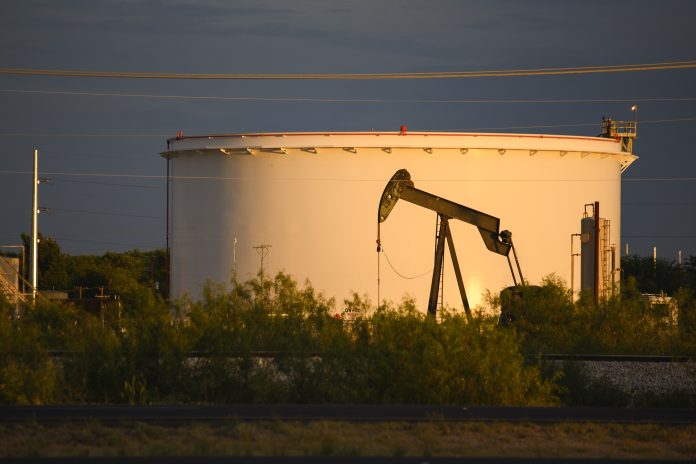
California has been going all out in its anti-oil and natural gas campaign, banning the sale of new gasoline-powered vehicles, restricting, and in some instances, forbidding new oil wells, in some cities banning gasoline service stations and non-electric lawnmowers and now prohibiting fracking.
But State Rep. Brooks Landgraf and Waco economist Ray Perryman say those extremes are untenable.
“California’s ill-advised war on fossil fuels is crumbling under the weight of reality,” said Rep. Landgraf, an Odessa Republican who chairs the Texas House Environmental Regulation Committee in Austin. “Despite their efforts to ban gasoline-powered vehicles and lawnmowers, California officials are quietly retracting these regulations after realizing the harm they inflict on their own citizens.
“The troubling trend in attempts by radical activists to import California-style legislation into states like Texas is indeed concerning. However, I have continued to successfully fight against any Green New Deal policies that could threaten energy independence and freedom in Texas.”
Through legislation like Senate bill 1017, which Landgraf filed in 2023 and used all his power to see passed and signed into law by Gov. Greg Abbott, he said, “We affirmed Texans’ right to freely choose their energy sources in our state by prohibiting local governments from adopting or enforcing any rule or ordinance that would limit access to gasoline, diesel or any other fuel source.
“Let me be unequivocal. Under my watch no big-city politicians will ever ‘California’ our Texas. Come what may we will continue upholding our state’s legacy of freedom and independence in energy choices and I am confident that other states across the nation will follow our lead.”
Perryman said the reality for California, the United States and the world is that the need for energy is growing.
“Moreover for the foreseeable future, fossil fuels will be crucial to meeting demand,” he said. “The recent International Energy Outlook produced by the U.S. Department of Energy indicated growth in oil and natural gas demand through 2050 under a variety of growth, pricing and alternative fuel development technologies.”
In 2022, Perryman said, about one third of California’s power generation was fueled by natural gas and the state imported another 30 percent of its electricity from other states.
“Although California leads in installed solar capacity, Texas is seeing more installations and the gap is narrowing as Texas now leads in utility-level solar capacity,” he said. “Texas has also long surpassed California in the amount of wind generation capacity installed and is by far the national leader.
“Even in the face of climate issues it is important to be realistic and cognizant of the challenges involved in transitioning to renewable sources. The primary burden has already fallen on the people of California through higher prices and fewer options for vehicles and equipment.”
Perryman said California ranks seventh among the states in oil production behind Texas, New Mexico, North Dakota, Alaska, Colorado and Oklahoma, producing as much per year as the Permian Basin produces in about three weeks.
“Thus any additional restrictions on drilling methods will not change production levels in a way that will noticeably impact global markets,” he said. “It is possible to produce fossil fuels responsibly and it is crucial to do so given the current and anticipated state of technology to store energy.
“Renewable sources, wind, solar and others, are important, but they cannot currently provide enough energy on a consistent basis to accommodate the demands of global growth. Until major advances in storage capabilities and additional energy sources occur and reach scalable status, fossil fuels will remain an essential part of energy supply.”



